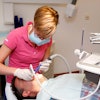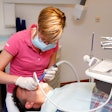The Fifth German Oral Health Study (DMS V) is being conducted to produce data on oral health status, oral health behavior, and risk factors in Germany, according to a study protocol published online December 29 in BMC Oral Health.
Oral epidemiological data show that dental caries and periodontal disease are highly prevalent in Germany, though significant improvements in oral health have occurred in recent decades, particularly in children, wrote lead author Rainer Jordan, from the Institute of German Dentists (IDZ), and colleagues.
The cross-sectional, multicenter study will investigate oral health in four age cohorts: 12-year-olds, 35- to 44-year-olds, 65- to 74-year-olds, and 75- to 100-year-olds. The participants will be drawn from local residents' registration offices.
Social science parameters will cover perceptions and attitudes regarding oral health and nutrition as well as sociodemographic data, the authors noted in their study abstract. Clinical oral parameters will include tooth loss, caries and periodontitis, prosthodontic status, further developmental and acquired dental hard tissue, and mucosal lesions.
The DMS studies were previously conducted in 1989, 1997, and 2005; they are the only cross-sectional oral health studies conducted in Germany on a population-based national level, according to the authors.
"Updated prevalence and trend analyses of key oral diseases are, therefore, of major epidemiological and health services research interest," they wrote.



















